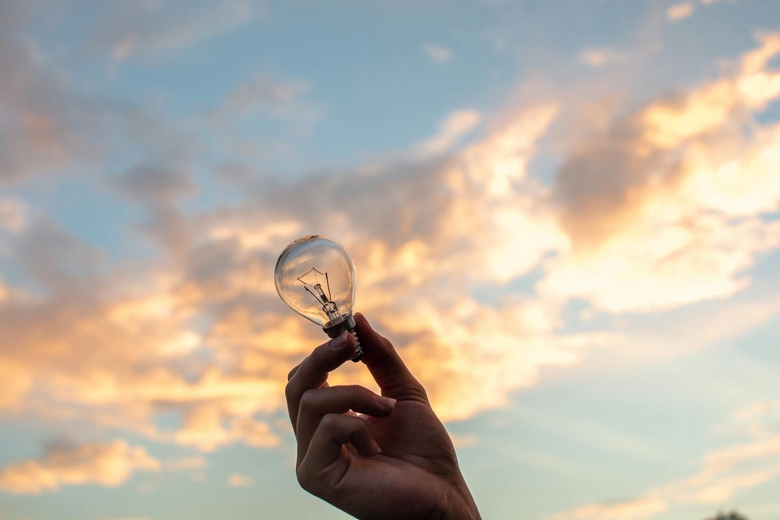Reducing your electric bill not only saves you money but also benefits the environment by lowering your energy consumption. With a few strategic changes and mindful practices, you can significantly cut down on your electricity costs. Here are some practical tips to help you lower your electric bill.

Conduct an Energy Audit
Professional Energy Audit: Consider hiring a professional to conduct an energy audit of your home. They can identify areas where you're losing energy and provide specific recommendations to improve efficiency.
DIY Energy Audit: If a professional audit isn't in your budget, you can perform a basic audit yourself. Check for drafts, inspect insulation, and evaluate the efficiency of your appliances and lighting.
Optimize Heating and Cooling
Programmable Thermostat: Invest in a programmable thermostat to better control your heating and cooling. Set it to lower temperatures when you're away or sleeping and higher when you're home and awake. Smart thermostats can be programmed remotely, providing greater flexibility and efficiency.
Seal Leaks: Seal gaps and cracks around doors, windows, and ducts to prevent air leaks. Use weatherstripping and caulk to keep warm air in during winter and cool air in during summer.
Insulation: Ensure your home is well-insulated. Proper insulation in your attic, walls, and floors can significantly reduce heating and cooling costs.
Ceiling Fans: Use ceiling fans to circulate air. In summer, set fans to rotate counterclockwise to create a cooling breeze, and in winter, set them clockwise to push warm air down.
Improve Appliance Efficiency
Energy-Efficient Appliances: Upgrade to energy-efficient appliances. Look for the ENERGY STAR label, which indicates that the appliance meets energy efficiency guidelines set by the U.S. Environmental Protection Agency.
Maintain Appliances: Regularly maintain your appliances to ensure they're running efficiently. Clean filters, coils, and vents to keep them in good working order.
Unplug Unused Electronics: Many electronics consume energy even when turned off. Unplug devices when they're not in use, or use power strips to easily switch them off.
Lighting Choices
LED Bulbs: Replace incandescent bulbs with LED bulbs. LEDs use up to 75% less energy and last significantly longer.
Natural Light: Maximize natural light during the day by opening curtains and blinds. This reduces the need for artificial lighting.
Motion Sensors and Timers: Install motion sensors and timers for outdoor and indoor lights to ensure they're only on when needed.
Water Heating
Lower Water Heater Temperature: Set your water heater to 120°F (49°C) instead of the standard 140°F (60°C). This can reduce energy consumption without sacrificing comfort.
Insulate Water Heater and Pipes: Insulate your water heater and the first few feet of hot water pipes. This helps retain heat and reduces the energy needed to keep water hot.
Use Less Hot Water: Take shorter showers, fix leaks, and use cold water for laundry when possible. Install low-flow showerheads and faucets to reduce hot water usage.
Laundry Tips
Full Loads: Run your washing machine and dishwasher with full loads to maximize efficiency.
Cold Water Wash: Use cold water for washing clothes whenever possible. Most of the energy used by washing machines goes to heating water.
Air Dry Clothes: Air dry your clothes instead of using a dryer. If you need to use a dryer, clean the lint filter regularly to maintain efficiency.
Kitchen Efficiency
Efficient Cooking: Use microwave ovens, toaster ovens, or slow cookers for cooking small meals. These appliances use less energy than conventional ovens and stovetops.
Fridge and Freezer Maintenance: Keep your refrigerator and freezer full but not overcrowded. Ensure the seals are tight, and clean the coils regularly to maintain efficiency.
Defrost Regularly: Defrost your freezer regularly to prevent ice build-up, which can reduce efficiency.
Renewable Energy
Solar Panels: Consider installing solar panels to generate your own electricity. This can significantly reduce or even eliminate your electric bill over time.
Wind Turbines: If you live in a windy area, small residential wind turbines can be a viable option for generating renewable energy.
Monitor Your Usage
Smart Meters: Install a smart meter to monitor your energy usage in real-time. This can help you identify patterns and areas where you can reduce consumption.
Energy Apps: Use energy monitoring apps to track your electricity usage. These apps provide insights and tips on how to reduce your consumption.
Lowering your electric bill is achievable with a combination of strategic investments, mindful practices, and energy-efficient upgrades. By conducting an energy audit, optimizing heating and cooling, improving appliance efficiency, and adopting smarter lighting and water heating practices, you can enjoy significant savings on your electricity costs. Implement these tips gradually, and you'll see a noticeable difference in your energy bills while contributing to a more sustainable environment.